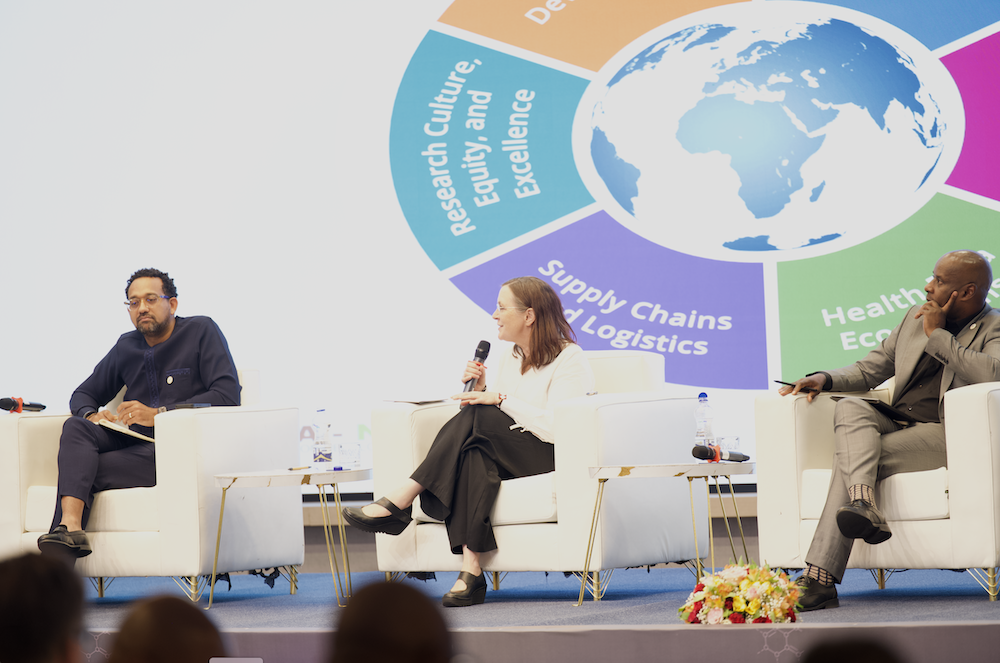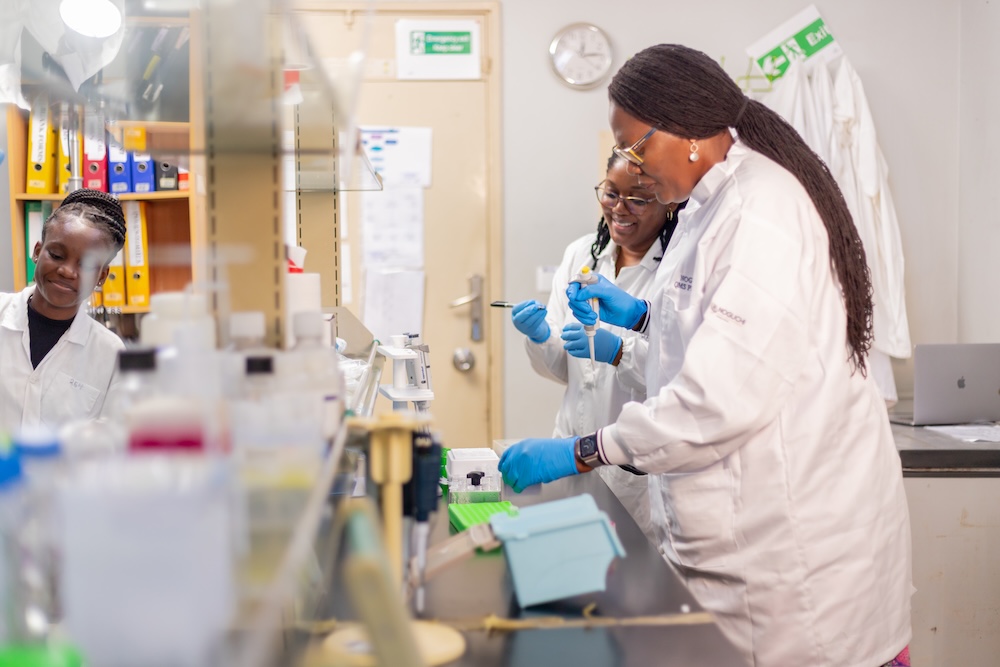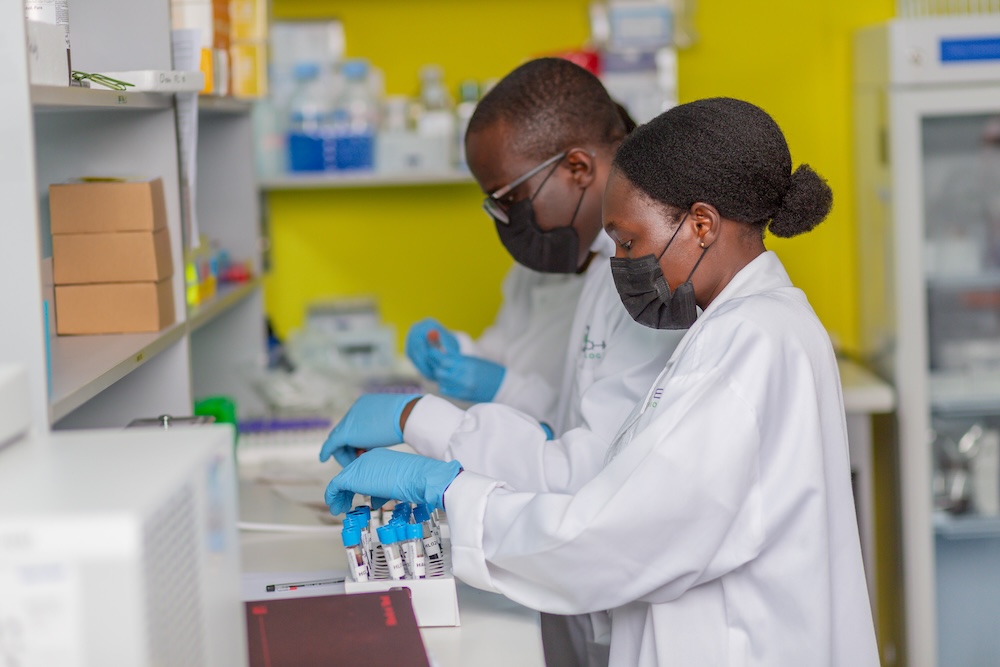
Media Centre
Inaugural Africa Science Journalism Awards celebrate excellence in science reporting
Tuesday, November 28, 2023
Lusaka, Zambia - November 29, 2023 – The Science for Africa Foundation (SFA Foundation) today announced the winners of the inaugural Africa Science Journalism Awards (ASJA) aimed at recognising and honouring outstanding reporting on science and development in Africa. The winners were announced today at a groundbreaking event on the sidelines of the 3rd International Conference on Public Health in Africa (CPHIA 2023) in Lusaka, Zambia.
ASJA, a project of the SFA Foundation with the support of the Bill & Melinda Gates Foundation, seeks to uplift credible health, science, and development reporting. The awards aim to contribute to the pool of science journalists in Africa and enhance their capacity through workshops and site visits to research institutions fostering in-depth knowledge about specific research being done across the continent.
"Our commitment to enhancing the capacity of African journalists to report on science is grounded in the belief that a well-informed society is a catalyst for progress. Empowering journalists to delve into the intricacies of science not only fosters accurate reporting but also cultivates a culture of inquiry and innovation, essential for the sustainable development of our continent. By investing in the skills and knowledge of African journalists, we pave the way for a future where science communication becomes a cornerstone in shaping policies, fostering public awareness, and ultimately improving the lives of our communities," said Deborah-Fay Ndlovu, Corporate and Science Communication Manager at the SFA Foundation.
The awards recognise journalists covering the SFA Foundation’s thematic areas of health, climate and environment, and agriculture.
The selection process involved:
-
An internal triage team, including members from the DELTAS Africa Science Communication Network who are science communicators from countries, such as Uganda Senegal, South Africa and Zimbabwe who reviewed 204 applications to whittle down to a long list of 79 articles. The 204 applications came from 17 African countries spread across five regions, namely Benin, Burkina Faso, Cameroon, Egypt, Ghana, Ivory Coast, Kenya, Malawi, Morocco, Nigeria, Uganda, Tanzania, Tunisia, Sudan, South Africa, Rwanda, Zimbabwe
-
An external selection panel which comprised senior science journalists from Cameroon, Kenya, Nigeria, Uganda, South Africa and Zimbabwe and reviewed the longlist to shortlist 2 winners and recommended an honourable mention for the second and third runner ups from each of the two categories as follows:
Winners
Best News Story/Feature
Laura Grant from the Outlier, South Africa’s first data driven publication, won in this category for her story titled, A perfect storm, Link.
Honourable mentions in this category went to:
-
Kenya’s Mary Mwenda for the Banned Pesticides: Hazardous Pesticides in EU Markets Retail in Kenya and Cameroon published by Talk Africa, Link
-
Ghana’s Mahmud Mohammed-Nurdeen for How Ghanian farmers are adapting to climate change by embracing ‘lost crops” respectively published by My joy Online, Link
Innovative Story of the Year
-
Jean Pierre Afadhali of Infoline publication won for his article titled Rwanda banks on single-use plastic ban to tackle plastic pollution, Link
Honourable mentions for this category went to:
-
Ghana’s Ridwan Karim of the Pulitzer Centre wrote on Trash Sorters in Ghana Face Health and Safety Risks, Link
-
Malawi’s Josephine Chinele for Facing New Polio Cases, Malawi Resorts to Drones to Deliver Vaccines published by the Health Policy Watch, Link
The selection panel consisting of senior science journalists and editors from key publishing media houses regionally, commended the transparent review process, expressing confidence in the selected winners and the quality of science journalism on the continent. Notably, winners from smaller publications outperformed well-resourced organisations, showcasing the growing excellence in African science journalism.
Quotes from winners
Jean Pierre Afadhali who is winner of the innovative story of the year said: “I am excited to win the inaugural ASJA in recognition of my consistent efforts to tell complex science stories for audiences in Rwanda, East Africa and the wider Africa. I am encouraged to continue covering science stories and will continue to use my media skills and the love for science to tell compelling stories that educate and inform policymakers, the scientific community, citizens and the society at large in Africa.”
Laura Grant who is the winner for the best science/ feature story category said: “We are so proud to accept this inaugural award. There is so much excellent research that scientists on the continent are doing that doesn’t make it into the mainstream media space. So, to be seen as part of that ecosystem of excellence in African science is exciting. Awards like these keep us, as data journalists and science storytellers, going. It is incredibly rewarding to tell these important, though complicated, stories in a way that people can understand, are compelling and provide solutions to some of the most pressing issues of our time — issues that we look toward science to help us solve.”
About Science for Africa Foundation (SFA Foundation)
The SFA Foundation is a pan-African, non-profit and public charity organisation that supports, strengthens, and promotes science and innovation in Africa. The SFA Foundation serves the African research ecosystem by funding excellent ideas in research and innovation; enabling interdisciplinary collaborations and building and reinforcing environments that are conducive for scientists to thrive and produce quality research that generates new, locally relevant knowledge.
For media inquiries, contact:
Deborah-Fay Ndlovu | [email protected]



